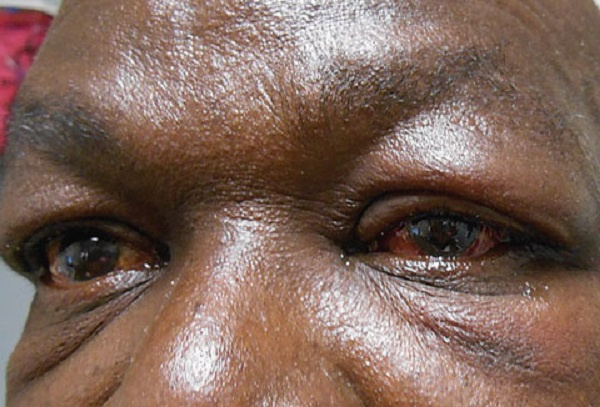Hemorrhagic Conjunctivitis: All you need to know about the viral ‘apollo’ eye infection

Both adults and children have fallen victim to this affliction, prompting a surge in visits to healthcare facilities.
Referred to by medical professionals as Hemorrhagic Conjunctivitis, this condition warrants attention and understanding to effectively combat its spread and manage its symptoms.
Understanding Hemorrhagic Conjunctivitis
Hemorrhagic conjunctivitis, or Apollo, is an eye condition characterized by inflammation and bleeding of the conjunctiva – the thin membrane covering the whites of the eyes and the inner eyelids. Caused primarily by viral infections, this condition is often triggered by enterovirus 70 (EV-70) and coxsackievirus A24 (CA24).
The infection is highly contagious and can spread through direct contact with contaminated surfaces, respiratory droplets, or close personal contact.
Recognizing the Symptoms
The symptoms of Hemorrhagic Conjunctivitis can be distressing, manifesting as redness, excessive tearing, irritation, and a sensation of having a foreign body in the eye.
The eyes may appear bloodshot due to the presence of subconjunctival hemorrhages, which are small spots of bleeding under the conjunctiva. Pain and discomfort, particularly when blinking or exposed to bright light, are also common indicators of the infection.
Transmission and Incubation
The virus responsible for Hemorrhagic Conjunctivitis has a short incubation period of approximately 1 to 3 days. This means that after exposure to an infected person or contaminated surface, symptoms may emerge within this time frame. The infection spreads easily, making crowded environments conducive to its transmission.
Prevention and Management
Preventing the spread of Hemorrhagic Conjunctivitis involves practicing good hygiene. Regular handwashing, avoiding touching the eyes, and refraining from sharing personal items like towels or makeup are essential preventive measures. If infected, isolating oneself and avoiding close contact with others can help contain the virus’s spread.
While there is no specific antiviral treatment for Hemorrhagic Conjunctivitis, there are ways to manage its symptoms. Lubricating eye drops, cool compresses, and pain relievers can provide relief. In severe cases, medical professionals might prescribe antiviral eye drops or ointments to alleviate the infection’s duration and severity.
Seeking Medical Attention
If you suspect that you or someone you know is affected by Hemorrhagic Conjunctivitis, seeking medical attention is vital. Medical professionals can accurately diagnose the infection and recommend appropriate management strategies.
As the “Apollo” eye infection continues to affect communities across Ghana, understanding the key facts about Hemorrhagic Conjunctivitis is crucial in containing its spread and ensuring timely treatment. By practicing good hygiene and promptly seeking medical attention, we can work together to curb the impact of this contagious eye condition on our health and well-being.
Disclaimer
The information provided in this feature is intended solely for educational purposes. While efforts have been made to ensure the accuracy and comprehensiveness of the content, it should not be considered a substitute for professional medical advice, diagnosis, or treatment.
If you suspect you or someone you know is affected by Hemorrhagic Conjunctivitis or any other medical condition, it is strongly recommended to consult a qualified healthcare professional for accurate diagnosis and appropriate medical guidance. The author, publisher, and any involved parties do not assume any responsibility for the use or misuse of the information provided in this feature.
Source: www.ghanaweb.com





